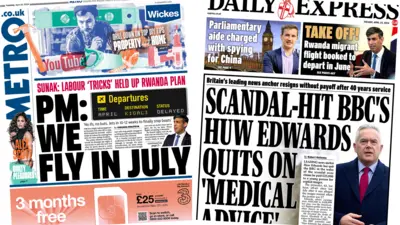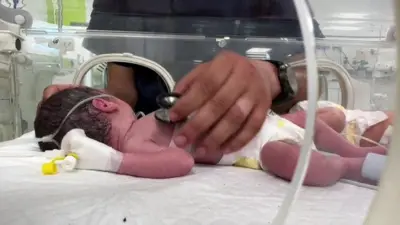We've updated our Privacy and Cookies Policy
We've made some important changes to our Privacy and Cookies Policy and we want you to know what this means for you and your data.
Covid: Nativity plays could help virus spread further, warns expert
Image source, Getty Images
A public health expert has warned of a 'Little Donkey effect' of school Nativity plays and seasonal events helping to spread coronavirus.
Andy Kingdom, public health director at East Riding Council, said he had spoken to schools about making Christmas shows as safe as possible.
He urged parents of primary children to get vaccinated if they had not already done so.
Mr Kingdom added the youngsters could "act as vectors for infections".
He predicted a rise in infections in under 11s which would continue until the end of the school term.
"We could see something of a 'Little Donkey' effect as schools put on these events, they want to celebrate their pupils, their families and the community but the trouble is coronavirus could then get into the community from them," he added.
Mr Kingdom said school leaders were "stuck between a rock and hard place" due to differing parental expectations around restrictions.
He added: "Every school is different, the variables are different for a primary school in a small village compared to one in a larger town.
"Schools will have to balance those factors and innovative ways of keeping people safe will be needed, otherwise one Nativity play could result in a lot of families becoming infected."
His warning came as 1,665 new coronavirus cases were recorded in the East Riding of Yorkshire in the week to November 18, up from 1,484 cases the previous week.
The infection rate rose from 432 to 485 cases per 100,000 people during the same period.
Image source, Getty Images
Mr Kingdom said expected the number of those in hospital with coronavirus to fall by mid-December as more older people got their vaccine booster jabs, according to the Local Democracy Reporting Service.
Infection rates were now as high as 1,000 cases per 100,000 for primary age children because they had not yet been vaccinated, providing the virus with a pool of people to infect, he added.
However, the risk of a young child getting ill or ending up in hospital was "very low", he said.
Follow BBC East Yorkshire and Lincolnshire on Facebook, Twitter, and Instagram. Send your story ideas to yorkslincs.news@bbc.co.uk.
Top Stories
Features & Analysis
Most read
Content is not available








